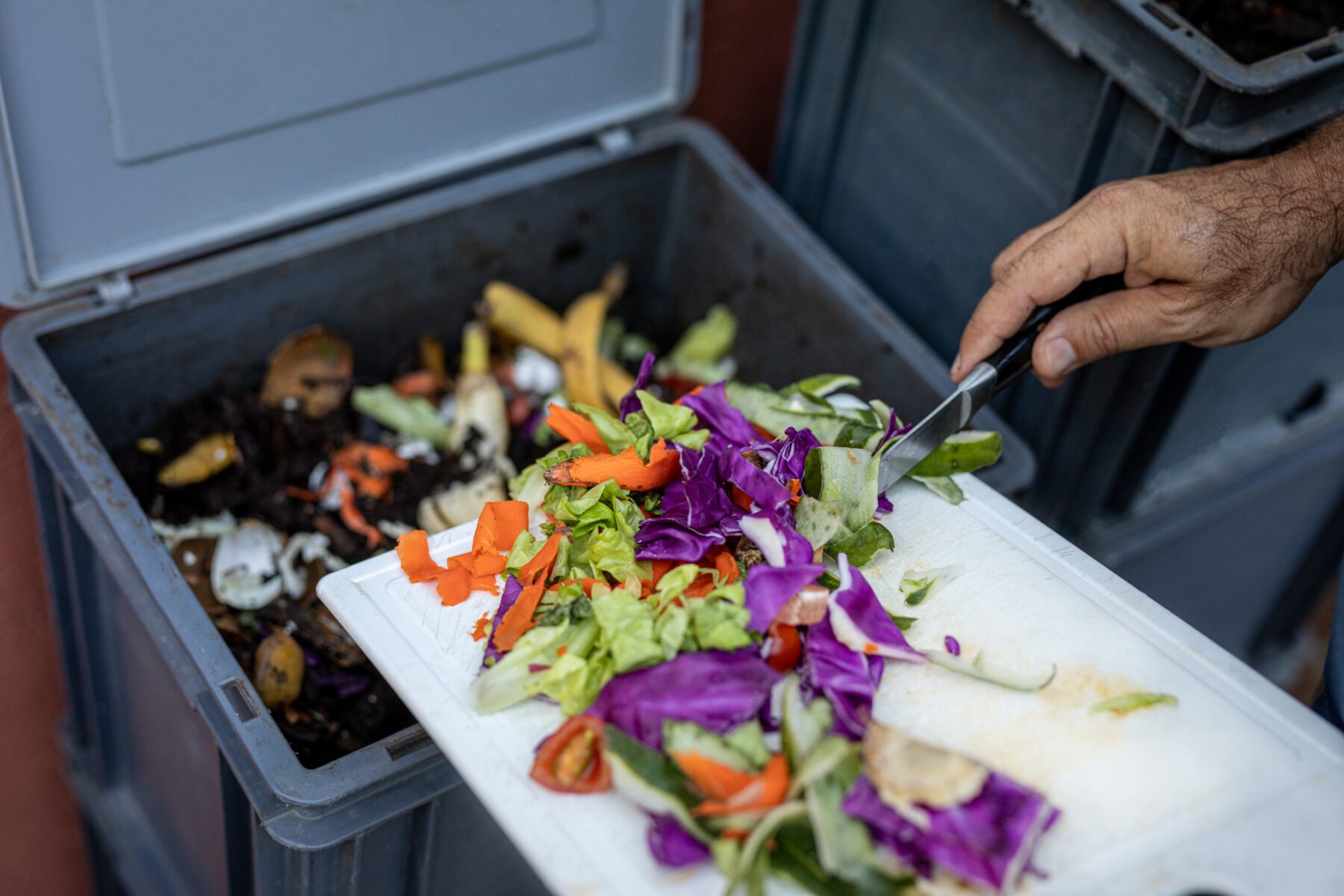Rhode Island schools struggle to implement composting mandates, survey reveals
A recent survey by the Youth Composting Campaign Initiative reveals that Rhode Island schools are struggling to implement composting mandates, with only 33% of surveyed schools having an active composting program. The findings highlight the need for increased support and resources to ensure compliance.
April 29, 2024, 8:47 am
By Uprise RI Staff
In January 2021, Rhode Island introduced a law mandating schools to adopt composting initiatives. However, a recent survey conducted by the Youth Composting Campaign Initiative (YCCI) has uncovered a significant gap between the policy’s requirements and the actual implementation of composting programs in schools across the state.
The survey, which included responses from 88 participants representing 288 schools, aimed to assess the current state of composting initiatives and identify the challenges hindering compliance with the mandate. The results paint a concerning picture, with only 33% of surveyed schools reporting having an active composting program in place, despite the mandate being in effect for over two years.
One of the most striking findings of the survey was the limited awareness of the composting mandate among school communities. A mere 36.4% of participants reported hearing about the policy, suggesting a significant lack of communication and education surrounding the initiative. This lack of awareness was particularly evident among schools that do not currently have a composting program, with 76.3% of respondents from these institutions unaware of the mandate’s existence.
The survey also revealed a notable disparity in composting implementation across different age groups. While elementary schools demonstrated the highest awareness of the mandate at 54.1% and a relatively higher implementation rate of 40.5%, high schools lagged behind, with only 18.5% of respondents aware of the mandate and a mere 14.8% having a composting program in place. This contrast highlights the need for targeted support and resources to ensure that composting initiatives are adopted across all educational levels.
Even among schools that have managed to establish composting programs, the survey exposed significant challenges in program effectiveness and long-term sustainability. Only 27.6% of respondents described their composting program as strong, with an alarming 13.8% characterizing it as not strong at all. Participants cited difficulties in initiating and maintaining composting programs, with 34.5% finding the process somewhat difficult and 20.7% describing it as difficult to ensure consistency throughout the school year.
The survey also shed light on the potential external factors hindering the implementation of composting initiatives. Schools without composting programs reported a significant lack of administrative support, with 77.6% of respondents unable to determine any level of backing from school leadership. In contrast, 41.4% of schools with composting efforts indicated receiving substantial support from their administration. This disparity in support, coupled with limited resources and funding, creates a challenging environment for schools attempting to comply with the mandate.
Further, the survey revealed a correlation between community affluence and the adoption of composting programs. Schools in more affluent areas were more likely to have composting initiatives in place, with 31% of composting schools describing their communities as affluent and 17.2% as very affluent. Conversely, non-composting schools were more prevalent in less affluent regions, with 27.1% categorizing their communities as not affluent and 20.3% as not affluent at all. This finding underscores the need for equitable access to resources and support to ensure that all schools, regardless of socioeconomic status, can successfully implement composting programs.
The data gathered through the survey provides valuable insights into the specific challenges faced by schools in implementing composting initiatives. Respondents cited a range of barriers, including a lack of framework, limited resources, competing priorities, and logistical complexities such as attracting waste haulers and managing composting logistics. Some participants also expressed concerns about pests, odors, and the need for education and training to ensure the success of composting programs.
Despite these challenges, the survey also revealed a strong interest and eagerness among educators and students to engage in composting initiatives. Many respondents expressed a desire to start composting programs in their schools and recognized the environmental benefits of reducing waste and enriching soil health. However, the barriers identified in the survey suggest that many schools require additional support, resources, and enforcement to successfully implement and sustain composting programs.
The findings of this survey have significant implications for policymakers and stakeholders involved in promoting composting initiatives in Rhode Island schools. The limited awareness of the mandate and the gap between awareness and implementation highlight the need for increased education, outreach, and communication efforts. Policymakers must also address the disparities in support and resources across schools, ensuring that all institutions have access to the necessary tools and funding to comply with the mandate.
Additionally, the challenges faced by schools in initiating and maintaining composting programs underscore the importance of providing ongoing support, training, and resources to ensure the long-term sustainability of these initiatives. Policymakers and environmental organizations must work together to develop strategies that address the logistical complexities, resource constraints, and administrative barriers hindering the widespread adoption of composting in schools.
This survey conducted by the Youth Composting Campaign Initiative has exposed the significant challenges and shortcomings in the implementation of composting mandates in Rhode Island schools. While the state has taken a commendable step in introducing this mandate, the survey results demonstrate that more work needs to be done to ensure compliance and success. By addressing the barriers identified in the survey, providing equitable access to resources, and fostering a supportive environment for composting initiatives, Rhode Island can work towards achieving its sustainability goals and cultivating a generation of environmentally conscious students. It is imperative that policymakers, educators, and communities come together to prioritize composting in schools and create a sustainable future for all.
If you would like to join those who are calling on the state to enforce this mandate, sign the petition.
The survey was conducted on behalf of the Youth Composting Campaign Initiative (YCCI) by Emma Pautz from Barrington HS and Bella Quiroa from The Met HS. The full report can be reviewed here.






